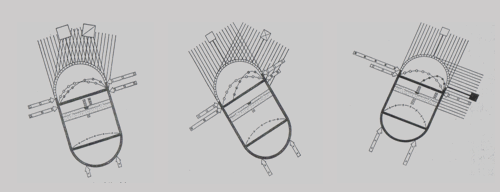|
Many lessons, both theoretical and experimental, can be drawn from Tolman’s work. The Schematic Sowbug, that is, formulating a theory by constructing an artificial organism, has not perhaps received, historically, the attention it deserves. The present work attempts to rectify this situation, in two ways: by completing Tolman’s speculative endeavours, by building a simulated Sowbug, something he was unable to do, given the then level of technological development; and by emphasizing the originality and the current relevance of his approach, using an innovative conception of an experimental robot.
After describing in detail the implementation of the schematic Sowbug, we report the results obtained using this device, and compare them with Tolman’s qualitative predictions, and with the results obtained using natural organisms. These results are perfectly consistent, and show how effective this approach, based on building situated robots, can be in modelling psychological phenomena.
|
|

